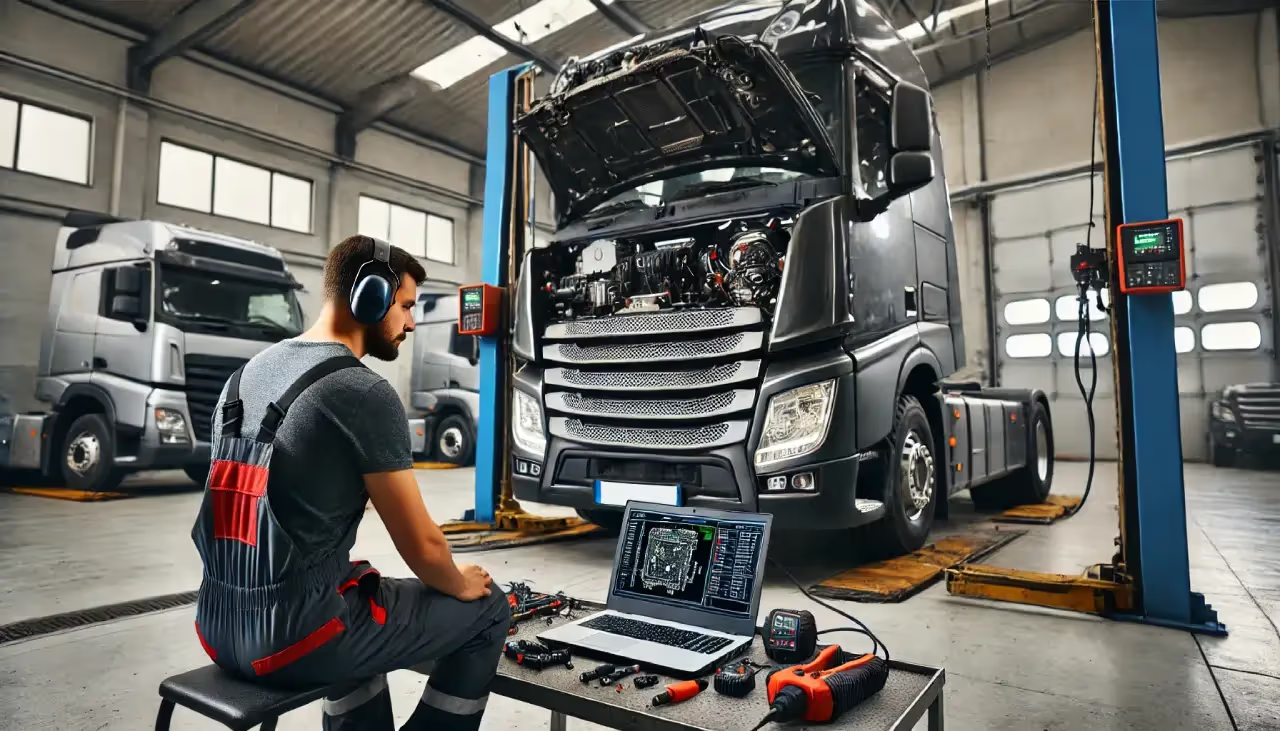Protecting Your Investment: The Do’s and Don'ts of ECM Tuning for Heavy-Duty Vehicles
ECM tuning boosts heavy-duty vehicle performance but can be risky if mishandled. This guide ensures best practices for peak performance and safety.

It may sound like something from ‘The Fast and the Furious,’ but ECM tuning is actually a common process among heavy-duty vehicles. Its benefits are endless, and you can see your operational performance, efficiency, and profitability skyrocket. However, if it’s not handled correctly, you may do more harm than good.
Here, you will find everything you need to know about best practices for the process. This will help you safeguard against potential risks and guarantee peak performance, mile after mile.
The Benefits of ECM Tuning
ECM tuning offers numerous benefits that can significantly enhance the operational capabilities of heavy-duty vehicles. Improved fuel efficiency can lead to substantial cost savings over time, and with the price of diesel on the rise, this can only be a good thing.
Increased horsepower and optimized engine performance are also significant advantages, making a well-tuned vehicle more reliable and powerful. Many truck drivers and fleet managers have noted these improvements, reporting not just better performance but also reduced operational costs.
Engine Control Module tuning benefits extend beyond immediate performance enhancements. They contribute to the overall health of your vehicle, ensuring that it runs at peak efficiency while adhering to environmental standards. By optimizing fuel consumption and engine output, ECM tuning helps reduce the ecological footprint of heavy-duty vehicles.
Enhanced drivability and smoother operation are other benefits, leading to less wear on the engine and other critical components. This can decrease downtime and maintenance costs, adding to the overall economic advantage of proper ECM tuning.
The Risks of Incorrect ECM Tuning
However, ECM tuning risks are real and can be significant if managed incorrectly. Incorrect tuning can lead to engine damage, potentially voiding manufacturer warranties and drastically shortening the lifespan of the vehicle. These repercussions should hit home just how important professional tuning is.
Professionals guarantee that the tuning complies with all operational standards and vehicle specifications, safeguarding your investment and maintaining its value. Amateurish tuning might also lead to increased emissions, resulting in fines and legal issues due to non-compliance with environmental regulations.
Do’s of ECM Tuning
When considering ECM tuning, always opt for certified and experienced technicians who specialize in heavy-duty vehicle tuning. These professionals possess the nuanced understanding required to adjust your vehicle’s ECM correctly.
Regular ECM diagnostics are essential. They ensure that the tuning meets your vehicle's needs without causing undue stress on its systems. Always maintain a detailed log of all modifications and tuning sessions, which is valuable for warranty claims and future troubleshooting.
Also, ensure that any tuning done provides a balance between performance enhancement and safety. Overlooking this balance can lead to catastrophic engine failures and safety risks on the road.
Don'ts of ECM Tuning
Avoid unverified tuning kits and software often available online. These may not only be ineffective but could also harm your vehicle.
Also, avoid extreme tuning practices that push your vehicle beyond its designed operational limits. These modifications can lead to severe mechanical failures and have legal implications, particularly concerning emissions standards.
Avoid tuning your vehicle based solely on cost considerations. Choosing cheaper, less reliable options can result in poor tuning quality that may cost more in the long run due to increased repair and maintenance needs.
Choosing the Right Tuning Service
Selecting the right ECM tuning services involves checking for certifications and positive customer reviews, which indicate reliability and quality. Look for providers offering comprehensive tuning solutions, including post-tuning support and diagnostics. This ongoing support is crucial for maintaining the vehicle’s performance and addressing any issues arising after tuning.
A good service provider will also offer a transparent process where they explain the changes made and provide a clear understanding of the impact these changes will have on your vehicle's performance and safety.
Maintenance Tips Post-ECM Tuning
Adhering to a strict maintenance schedule post-tuning is crucial. Regular check-ups ensure that the vehicle remains in optimal condition and that the tuning continues to provide the desired performance benefits. Maintaining tuned vehicles requires a diligent approach to monitoring and promptly addressing any emerging issues, ensuring the vehicle remains safe and efficient.
Ensure that you also keep up with the latest software updates and fixes from the vehicle manufacturer, which can sometimes affect the parameters of your ECM tuning.
Conclusion
Effective ECM tuning for heavy-duty vehicles is an investment in the performance and longevity of your vehicle. By following the guidelines outlined in this article, you can ensure that this process enhances your vehicle’s operation without compromising its integrity. Always remember, the goal of ECM tuning is to make your vehicle better, not just different.
Trust professionals, stay informed, and your heavy-duty vehicle will serve you well for many years to come, making ECM tuning a wise and profitable aspect of vehicle management.
Contact Performance Diesel
Performance Diesel provides experienced diesel mechanic service for medium, heavy-duty truck, & commercial fleet repairs, both in-shop in Jackson, GA & via mobile service to the surrounding areas. Contact us today with any questions, to request a quote, and to schedule service.

.png)